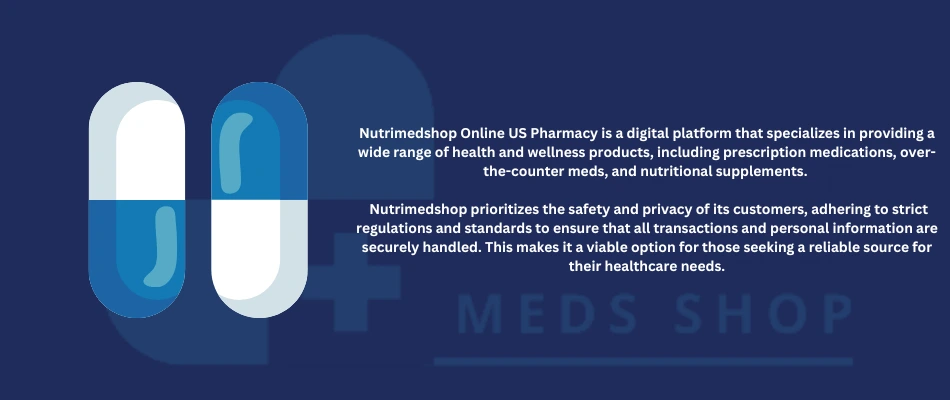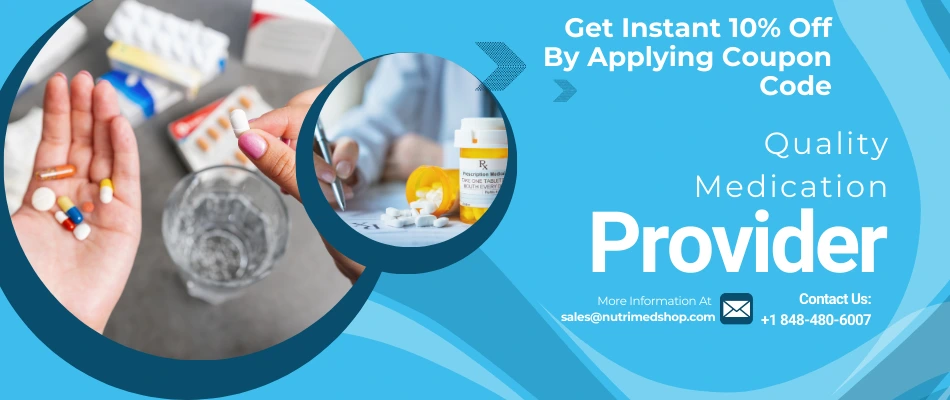- enquiry@nutrimedshop.com
- +1 848-480-6007
- Adderall
- Adipex
- Alprazolam
- Ambien
- Ativan
- Carisoprodol
- Clonazepam
- Codeine
- Darvocet
- Demerol
- Diazepam
- Dilaudid
- Fioricet
- Hydrocodone
- Hydromorphone
- Lorazepam
- Lorcet
- Lortab
- Meridia
- Methadone
- Norco
- Opana ER
- Oxycodone
- Oxycontin
- Percocet
- Phentermine
- Roxicodone
- Soma
- Suboxone
- Subutex
- Tramadol
- Valium
- Viagra
- Vicodin
- Xanax
- Klonopin
- Cialis
Adderall Category
Adderall XR 20mg
$400 - $1160
Adderall XR 15mg
$380 - $1200
Adderall XR 10mg
$345 - $1005
Adderall 7.5mg
$309 - $789
Adderall 5mg
$279 - $749
Adderall 30mg
$450 - $1350
Adderall 20mg
$400 - $1200
Adderall 15mg
$400 - $1200
Adderall 12.5mg
$400 - $1200
Adderall 10mg
$355 - $1090
Adderall XR 25mg
$425 - $1225
Adderall XR 30mg
$450 - $1350
Adderall XR 5mg
$274 - $849
Category Description
Adderall enhances focus, alertness, and cognitive function in ADHD individuals. At Nutrimedshop.com, we focus on customer satisfaction and safety for efficient order processing. Buy Now !
What is Adderall?
Adderall is a prescription stimulant medication used to treat attention deficit hyperactivity disorder (ADHD) and narcolepsy. These are stimulants of the central nervous system that influence brain and nerve chemicals linked to hyperactivity and impulse control. It is a therapy for narcolepsy and attention deficit hyperactivity disorder (ADHD).
Depending on the formulation, Adderall’s duration of action varies. Extended-release formulations provide longer-lasting effects than immediate-release formulations, which usually have effects for four to six hours.
Medical Uses
Adderall is approved by the FDA for use in children ages 3 and older, adolescents, and adults. For ADHD, it is often prescribed as a first-line treatment option alongside behavior therapy. Several clinical trials and meta-analyses have demonstrated the efficacy of Adderall in addressing symptoms of ADHD, such as inattention, distractibility, and hyperactivity. Humans may have numbness, discomfort, or Diss-colouration in their fingers or toes due to problems with blood circulation. Call your doctor as soon as possible if you have any of the following symptoms:
- Heart issues, such as dizziness, discomfort in the chest, or difficulty breathing
- Aggression, paranoia, and seeing or hearing unreal things are signs of psychosis.
- Circulation issues include inexplicable sores on your fingers or toes.
If you have an overactive thyroid, glaucoma, severe agitation, heart disease or coronary artery disease, moderate to severe high blood pressure, vascular disease, or a history of drug or alcohol addiction, you may experience difficulties when using Adderall.
Dosage Guidelines :
Adult ADHD Dosage
First dosage: Take 5 milligrams by mouth once or twice day. Upkeep Dose: To get the best effect, increase by 5 mg per week. Highest Dosage: It is only essential in very rare situations to take more than 40 mg daily.When beginning treatment for the first time or transitioning from another medicine, patients must to adhere to following recommendations: Minimum Dose: Take 20 milligrams orally once day.
Side Effects
Adderall can cause various side effects, even when taken as prescribed. Some of the most common side effects include:
- Insomnia : Adderall is a stimulant, so it can make it difficult to fall asleep or stay asleep.
- Dry mouth : Adderall can reduce saliva production, leading to an uncomfortable dry mouth feeling.
- Headaches: Adderall can cause headaches or exacerbate existing headaches in some people. Staying hydrated and taking over-the-counter pain medication can provide relief.
- Anxiety : Adderall is known to increase feelings of anxiety, nervousness, and agitation in some individuals. Higher dosages increase the chance of this adverse effect.
- Appetite suppression : One of the most common side effects of Adderall is a suppressed appetite. People taking it may eat less and lose weight as a result.
Risks and Warnings
Adderall has a booster effects, there are medical risks associated with it, such as dependency and addiction. Higher dosages may be necessary as tolerance increases over time. When Adderall is stopped suddenly, withdrawal symptoms may occur. Follow the prescribed dosage closely and avoid increasing it without medical advice. Additionally, People with heart conditions should avoid taking Adderall due to its potential risks. Inform your doctor about any existing heart issues before using Adderall and closely monitor its effects with medical supervision. Overall, the benefits of Adderall need to be carefully weighed against the risks for each individual patient. Close monitoring by a doctor is essential when taking this powerful stimulant medication.
Which drugs cause Adderall interactions?
Adderall also interacts with blood thinners like warfarin, increasing the risk of bleeding. Using Adderall with acid reducers like antacids decreases absorption of the medication, making it less effective. Finally, alcohol should be avoided when taking Adderall. The combination further increases heart rate and blood pressure. It also compounds the unsafe physical and mental effects of both substances, especially at higher doses. The impaired judgment under the influence also increases the potential for Adderall misuse and addiction.
Abuse Potential
Adderall abuse can quickly spiral into addiction. Warning signs include:
- Taking more Adderall than prescribed
- Faking symptoms to get more prescriptions
- Continuing to use despite negative consequences
- Spending excessive time and energy obtaining Adderall
- Experiencing withdrawal when not taking it
Getting Help
The first step is often to speak to a doctor or mental health professional. They are able to conduct an analysis and suggest suitable course of action. Some key treatment approaches may include:
- Inpatient or outpatient addiction treatment programs : These programs offer round-the-clock support and monitoring in either an inpatient setting or structured therapy sessions in an outpatient setting. They use behavioral therapies and counseling to encourage sobriety.
- 12-step programs : Narcotics Anonymous and other groups offer a structured program for healing as well as support.. Following the 12 steps with a sponsor helps in staying accountable.
- Individual counseling : Consistent therapy sessions assist people in addressing the underlying roots of their addiction. Cognitive behavioral therapy is effective in modifying negative thinking patterns and behaviors.
- Medication : Medications can be prescribed to reduce cravings and withdrawal symptoms. Antidepressants, for instance, can help stabilize mood and decrease the urge to use stimulants for self-medication.
Having a strong support system is vital for addiction recovery. Making lifestyle changes, seeking professional help, and staying committed are key to overcoming addictions, even when feeling hopeless.
Conclusion:
In summary, while Adderall and similar stimulant medications are likely to remain first-line treatments for ADHD in the near future, researchers are actively pursuing new pharmacologic and non-pharmacologic options that retain efficacy while minimizing risks. The coming decades may see meaningful advances in providing safer, less abusable therapies for those living with ADHD.


